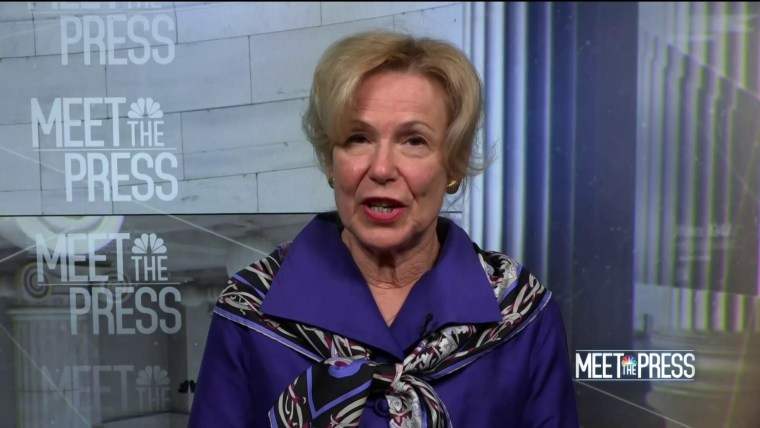Dr. Anthony Fauci said Sunday that he anticipates the coronavirus could kill between 100,000 and 200,000 Americans while infecting “millions.”
Speaking with CNN’s “State of the Union,” the director of the National Institute of Allergy and Infectious Diseases said however he does not want to be “held” to that prediction because the COVID-19 outbreak is “such a moving target.”
Fauci’s comments come as the much of the nation is shut down to contain the spread of the disease, which first appeared in China late last year. As of Sunday morning, roughly 125,000 coronavirus cases have been confirmed in the U.S., the highest total of any nation, with at least 2,000 deaths, according to a Johns Hopkins University tracker.
Fauci was asked about President Donald Trump’s remarks from earlier this week indicating he would like to see the country back at full speed by Easter, which is just two weeks from Sunday, and that he would reconsider his administration’s guidelines on social distancing this week.
Speaking Sunday, Fauci said how soon guidelines can begin to be relaxed depends on how many “rapid tests” — ones that can deliver results in less than an hour — can be made widely available across the country.
Let our news meet your inbox. The news and stories that matters, delivered weekday mornings.
“To put a time on it, I don’t know, it’s going to be a matter of weeks, it’s not going to be tomorrow and it’s certainly not going to be next week,” Fauci said. “It’s going to be a little bit more than that.”
“We’re a group, we’re a task force, we’re going to sit down and we’re going to talk about it,” Fauci added. “But obviously, what you see me describe, it’s a little iffy there. So we’ll take it as it comes, we’ll look at it, and if we need to push the date forward, we will push the date forward.”
On NBC’s “Meet the Press,” White House Coronavirus Response Coordinator Dr. Deborah Birx said “no state, no metro area will be spared from the virus.”
“Every metro area should assume that they will have an outbreak equivalent to New York,” she said, pointing to the area with the highest number of confirmed cases so far.
Speaking with “Fox News Sunday,” Dr. Tom Inglesby, director of the Center for Health Security of the Johns Hopkins Bloomberg School of Public Health, said he doesn’t believe Trump’s Easter timeline is realistic.
“I think as we’ve seen in Italy for example, which is a number of weeks ahead of the United States in its epidemic that even with very serious, very aggressive social distancing measures where people have been kept at home, schools have been closed, everyone is recommended not to leave their homes, that this disease has continued to spread and it causing national crisis,” he said.
“So at this point, I think what we need to do is really stick with what other countries that have had more success have done which is— they’ve largely been in Asia: Singapore, Hong Kong, South Korea, China, Taiwan — they have put in place social distancing measures until they’ve gotten control of the epidemic convincingly,” he continued. “And at that point, begun to try experiments with loosening it.”
Inglesby said he believes the U.S. will get to that point, just not as soon as mid-April.
“Obviously we need to as a country get to a point where people can go back to work, but if we go back to work too quickly, this epidemic is going to spread widely and aggressively,” he said. “And we won’t have a normal economy in that case anyway.”













